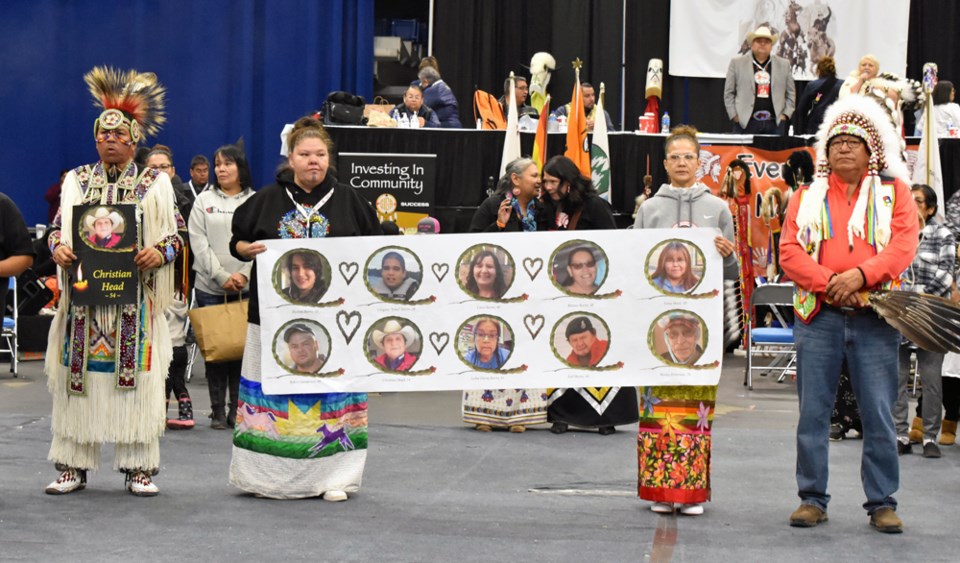JAMES SMITH CREE NATION — As the RCMP were releasing details Thursday about what happened on the James Smith Cree Nation and in the nearby village of Weldon on Sept. 4, when 11 people were killed and 18 were injured, the three chiefs of the community were attending a funeral and asked media not to enter the community.
Instead, the chiefs of James Smith Cree Nation, Peter Chapman, and Chakastaypasin issued the following statements as their response to the RCMP’s release of the preliminary timeline.
James Smith Cree Nation Chief Wally Burns said, “We would like to thank the Saskatchewan RCMP Major Crimes Unit for providing the preliminary timeline of events related to the James Smith tragedy to our community members. We appreciate the dedication of the RCMP to the investigation and the countless interviews and evidence they gathered; however, many questions remain unanswered. It's time we start looking at the real truth of our own actions. The events in September of last year turned our lives upside down. At the time of the tragedy, I felt responsible. I examined my own actions along with many other community members, as we were traumatized by the tragedy and looked to see if we, in some way, could have stopped it. After much contemplation about the event, I know we need to develop our own police force. I am not stopping until we get boots on the ground. We asked for three officers, and I am still waiting for them. The true answer to overcoming these barriers to safety and protection is self-administered policing on our First Nation. I will keep echoing this truth until we have access to proper policing supports in place that fit the needs of our community.”
Peter Chapman Chief Robert Head said, “We recognize the effort the RCMP put into the presentation. It was very informative in regards to the timeline of events. Hearing about it triggered a lot of trauma, stress, and anxiety in our people. In the days to come, we look forward to holding ceremonies with our people as we turn to our traditional practices for healing. We have a continuous drug problem in our First Nation, and we request that the RCMP be proactive in cracking down on drug dealers that prey on our people and ask that they enact search warrants and other methods within their power to help rid the community of drug dealers that continue to operate out of our village because these are the people who are providing meth to our children, our grandchildren, and our youth. At present, we are still grappling with policies that keep the RCMP from providing us with adequate policing and protection on reserve.”
Chakastaypasin Chief Calvin Sanderson said, “We commend the RCMP on their investigation and their work to piece together evidence to explain the tragedy to those who suffered through it. We look forward to learning more information at the Coroners’ inquests. Time was a factor in the tragic events at James Smith in September. We heard the RCMP reached excessively high speeds during their response. We heard how there were only two members on-call with the Melfort RCMP who responded to the initial call. Where was their backup? Why weren’t other officers called in immediately to help them? Over an hour passed before residents were alerted that there was a killer on the loose, and many of us feel the RCMP could have prevented more casualties if alerts had been issued sooner. We also need more attention placed on the current problems. Many people are plagued by addictions in the aftermath of the tragedy. Our calls for improved safety and policing are going unanswered. How can we prevent this from happening again? As leadership, we are working to answer the cries of our people for help, but the policies have to change so those involved in drugs and criminal activities can be removed, sent for treatment or provided with a pathway to healing. We need the ability to direct police and coordinate efforts to eradicate drugs and other problems in our community.”
The chiefs did not make themselves available for interviews Thursday.

.png;w=120;h=80;mode=crop)


